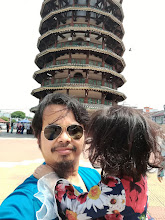The White & Black Coat of Euthanasia
There are many western countries that allow non-assisted suicide, like Ireland. A step further is allowing voluntary euthanasia, which countries like Netherland, Belgium and state of Oregon (US) have adopted the idea of legalising it.
We know that, as long as the doctor's intention is not to hasten death, certain thing like withdrawing ventilator support eventually will lead to a 'faster' death. But doctor usually did it in view of futility of the treatment, that the ventilator does not bring benefit to patients anymore, hence patient should be allowed to die.
Supporters of active voluntary euthanasia, that is the ability for terminal patients to request doctors to give them lethal injection to hasten death, argue that this is the right of full autonomy of patients. But then, we all do not have full autonomy. We cannot just injure other people, just because we have autonomy over our actions. When it involves harm to life, that's where autonomy stops.
Another argument is the beneficent role of doctor, to alleviate sufferings. Dying terminal patients are suffering, hence termination of their life is essentially terminating their sufferings. The exponential growth of palliative care specialty allows majority of these patients, whom we thought death is the only way to end suffering, to be treated with effective pain killer and medications, which essentially can ease their suffering.
Plus, there are times our decision at that particular moment in time, is something that we may regret, although we truly believe that was the correct one. The simplest example I usually give to my students is falling in love. At that moment in time, most people would swear that his/her partner is the best for them, only to realise the mistake that they have made, afterward. Although in this case, that person can regain his/her confidence back, dead patient will not be able to.
Also, we are also afraid that by allowing voluntary euthanasia, it will lead to non-voluntary euthanasia - that is when doctors decide for their incapacitated patients (babies, demented patients) the ability to administer lethal injection - which even many hardcore supporters of euthanasia find disturbing. In voluntary euthanasia, doctor will need to assess whether patients are capable of making that decision. So, what stop doctors from thinking that lethal injection is better, even in condition where patients cannot request.
At the end of the day, for those who believe in life after death, and that sickness may be positively viewed as destroyer of sins, it is difficult to accept the concept of voluntary euthanasia.

